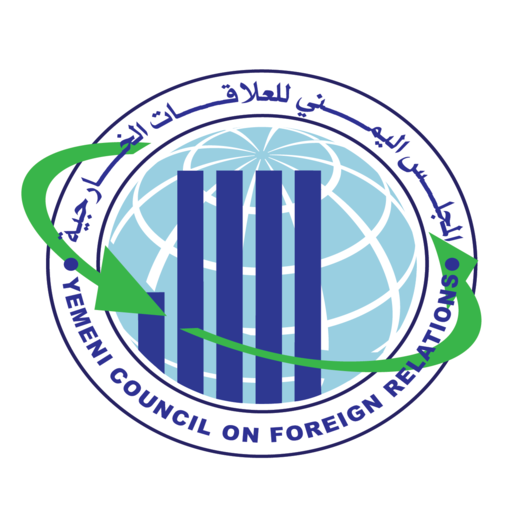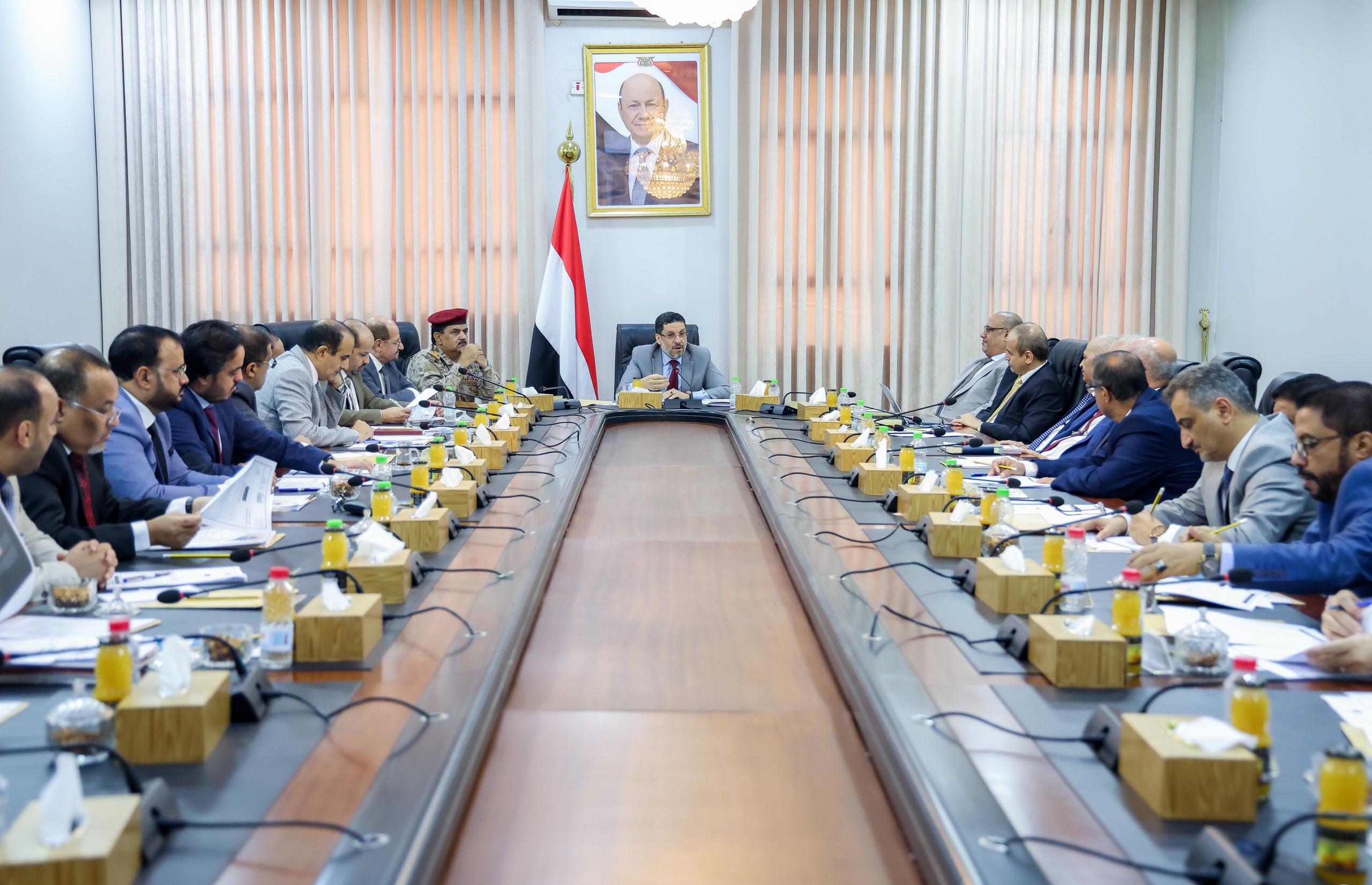Source: Saba News Agency
The Council of Ministers, in its meeting on Tuesday in the temporary capital, Aden, chaired by Prime Minister Dr. Ahmed Awad bin Mubarak, reviewed several topics and developments in light of recent developments in various aspects, primarily the political, economic, living, service, military, and security situations, and made several decisions and measures in this regard.
The Council of Ministers approved the resumption of Aden Refinery operations as a free zone. The Council agreed to allow the Aden Refinery Company to operate under the Free Zone system, given its location within the Aden Free Zone Sector (N) as defined by Prime Ministerial Decree No. 65 of 1993. This decree outlines the geographical boundaries for the application of the Free Zone system in Aden city and its amendments. The company will benefit from the privileges, advantages, and guarantees stipulated in the Free Zones Law.
The Council directed the Ministers of Oil and Minerals, Finance, Legal Affairs, Transport, the Minister of State – Governor of Aden, and the Head of the Aden Free Zone to implement the decision. They were further instructed to direct relevant authorities, each according to their jurisdiction, to operate according to established procedures for the implementation of the decision, following the practices in place before the cessation of these operations in 2015.
At the outset of the meeting, the Prime Minister briefed the Council members on the latest political, military, security, economic, and service developments. He emphasized the importance of continuing and doubling government efforts during this phase, based on national and moral responsibility and commitment to the Yemeni people and the homeland. He stressed that any difficulties should not affect the government’s performance and its duties towards serving citizens and alleviating their suffering. He highlighted the government’s fateful and existential battle to fully restore the state and end the Houthi coup, whether peacefully or through war.
Dr. Ahmed Awad bin Mubarak directed ministries and relevant authorities to prioritize the government’s main objectives and pathways, focusing all efforts on preserving the state’s legal standing, combating corruption, enhancing accountability, transparency, financial and administrative reform, resource development, and optimal utilization of foreign aid and grants. He emphasized that a strong and united Council is crucial for facing existing challenges and emerging developments.
The Prime Minister reiterated the government’s determination to move forward with comprehensive economic, administrative, and financial reforms. He also emphasized expanding opportunities and areas of support and partnership in this regard with brothers and friends, affirming the government’s commitment to implementing the Presidential Leadership Council’s directives in various aspects to address emerging changes.
The Council reviewed a report presented by the Minister of Defense regarding the military situation of the armed forces across all formations and their high readiness to deter any escalation by the Houthi militias on various fronts. The report highlighted continuing Houthi attacks on several fronts, resulting in the martyrdom and injury of dozens of heroes stationed on the front lines in recent weeks, indicating their lack of seriousness in responding to peace efforts.
The Council praised the high combat readiness of the armed forces, formations, and supporting units that have been and continue to confront the Houthi terrorist militia firmly on all fronts. They saluted the legendary steadfastness and immense sacrifices of the heroes stationed on various fronts who stand as an impenetrable dam against the Houthi enemy, affirming the government’s full support for the armed forces in carrying out their duties optimally.
The Council strongly condemned the Zionist entity’s aggression on al-Hudaydah port and its violation of Yemeni territorial sovereignty, in a flagrant violation of all international laws and norms. The Council also warned the Houthi militia against continuing to mortgage the fate of Yemen and its people and drag them into their futile battles serving the interests of the Iranian regime and its expansionist project in the region. They pointed to Yemen’s firm position on the Palestinian cause and its repeated calls to stop the Israeli aggression on the Palestinian people and achieve their aspirations for security, stability, a decent life, and the establishment of their independent state with Jerusalem as its capital.
Furthermore, the Minister of Defense, Head of the Supreme Security Committee, briefed the Council on the findings and developments in the case of the kidnapping of Lieutenant Colonel Ali Ashal, and the measures taken by security services to uncover and apprehend the perpetrators and liberate the abductee. He confirmed that important information had been obtained and would be announced to the public in a press conference in the coming days.
The Council commended the efforts of the Supreme Security Committee and the competent authorities in this regard, stressing the completion of procedures and their announcement to the public. They emphasized the importance of exerting all efforts to maintain security, stability, and public tranquility.
The Council discussed the developments in the economic, living, and service conditions, and the measures taken to alleviate the humanitarian suffering exacerbated by the Houthi terrorist militia’s attacks on oil facilities and international shipping lanes. The Council took several measures in this regard.
The Council listened to a report by the Minister of Foreign Affairs and Expatriates on the latest political developments, the government’s vision for dealing with regional and international changes, Yemeni movements in international forums, and the peace process.
In this regard, the Council affirmed its support for UN, regional, and international efforts to launch a comprehensive political process that meets the aspirations of all Yemenis. They emphasized the keenness to achieve a comprehensive and just peace based on the three agreed-upon references, which are nationally agreed upon and regionally and internationally supported, particularly Resolution 2216. The Council called on the Houthi militia to listen to reason and respond positively to peace efforts, stop the bloodshed, prioritize the interests of the Yemeni people over any other interests, and refrain from escaping internal and popular pressures and their living priorities by resorting to disastrous adventures and continuing to exploit the suffering of the Palestinian people and their just cause.
The Council reviewed a report by the Minister of Public Health and Population on the epidemiological situation of acute watery diarrhea (cholera) cases. The report included the measures taken to contain the epidemic, prevent its spread, treat infected cases, and the support required to overcome challenges and obstacles in confronting the spread of cholera.
The Council affirmed its support for the Ministry of Health’s efforts and procedures to limit the spread of the epidemic. They stressed the need for all ministries and relevant authorities to work as one team, especially in awareness-raising and preventive aspects. The council called upon international organizations to fulfill their roles in supporting the Ministry of Health’s efforts to confront this epidemic.

